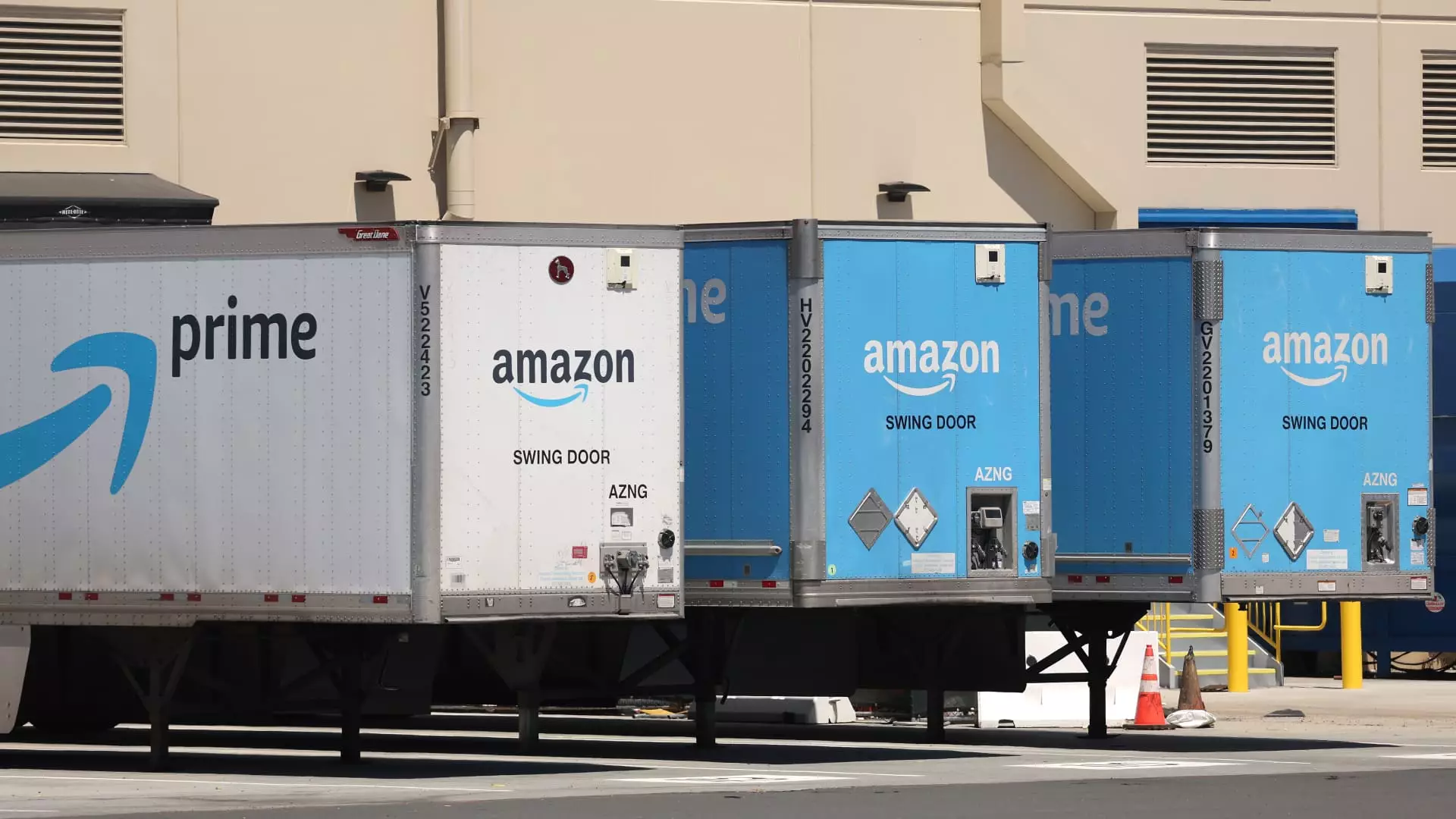The recent revelations from the Department of Justice (DOJ) regarding an Armenian organized crime ring’s elaborate scheme to pilfer over $83 million in cargo from Amazon are both startling and illustrative of a much deeper issue in the logistics and ecommerce sectors. Utilizing a veneer of legitimacy, these criminal operatives posed as ordinary truck drivers to engage in a premeditated and extensive theft of goods that would ordinarily find their way to consumers’ doorsteps. This staggering breach of trust and security starkly highlights the vulnerabilities embedded in the e-commerce ecosystem—particularly for a colossus like Amazon.
Since at least 2021, this group orchestrated a sophisticated operation across California, exploiting the dynamics of freight movement and logistics to commit theft on an atrocious scale. With high-demand goods—including smart TVs, GE icemakers, and popular kitchen appliances—flowing from warehouses, the group capitalized on the sheer volume and complexity of Amazon’s distribution channels to execute their insidious plan. Such criminal efforts not only impact corporate bottom lines but ripple through the economy, affecting workers, customers, and entire supply chains.
The Perils of Cargo Theft
Cargo theft stands as a significant and growing concern, with industry experts claiming that related losses surpass the $1 billion mark annually across various retailers. For Amazon, already facing challenges connected to its third-party seller ecosystem, the theft problem is compounded by the intricacies of tracking and negating illegal activities within its extensive marketplace. The 2023 reporting from CNBC emphasizes that Amazon’s attempts to combat illicit sales have led to the suspension of dozens of sellers accused of dealing in stolen goods. However, in a troubling twist, many of these sellers assert that they were unwittingly entangled in these illicit operations, jeopardizing their livelihoods in the process.
Such complexities force retailers into a precarious position, struggling to balance the need for stringent oversight while safeguarding honest business relationships. The DOJ’s allegations spotlight the ramifications of ignoring systemic vulnerabilities, as the Amazon Relay—that connects truckers with freight—proved to be an exploitable channel for criminal endeavors.
A Widespread Network of Deception
The defendants in this case didn’t merely act as rogue players; they established a network of fraudulent transport carriers—including AK Transportation, NBA Holdings, Belman Transport, and Markos Transportation. By manipulating the assignment of freight loads, these criminals diverted shipments from their intended destinations, subtly transforming lawful transport operations into lucrative crime fronts.
The DOJ’s investigation unearthed a trove of evidence—including smartphones containing incriminating photos and videos showcasing their ill-gotten gains. The visibility of such blatant disregard for law and ethics raises questions about how effectively vital logistics technology is monitored. The use of sophisticated tools like the Amazon Relay highlights essential gaps in security protocols within these systems, underscoring the need for comprehensive reform in compliance and monitoring processes.
Connections to Broader Criminal Activities
What makes this situation even graver is the claimed connection between the alleged perpetrators and a range of other serious offenses, including attempted murder, kidnapping, and health care fraud. The interlinking of cargo theft with violent crime discloses the chilling spectrum of organized crime, where theft is merely one facet amid a range of abhorrent activities. Investigative bodies, law enforcement, and societal oversight must now grapple not only with theft but also with the broader implications of entering into commerce with such deeply entrenched criminal networks.
As representatives from Amazon cooperate with DOJ officials in this ongoing investigation, the willingness of corporate giants to embrace accountability is vital. Transparency will be key, not just in assessing which internal measures failed but also in representing their commitment to rectifying these significant issues. Only through concerted, transparent efforts can these retailers hope to ensure customer safety, uphold brand integrity, and ultimately restore faith in their operations.
The case serves as a stark reminder: the world of online retail, with all its conveniences, also harbors profound risks, necessitating a vigilant and proactive approach to combat corruption and protect stakeholders across the board.

